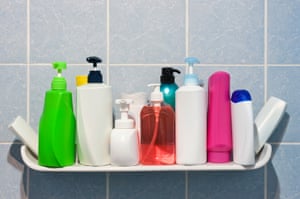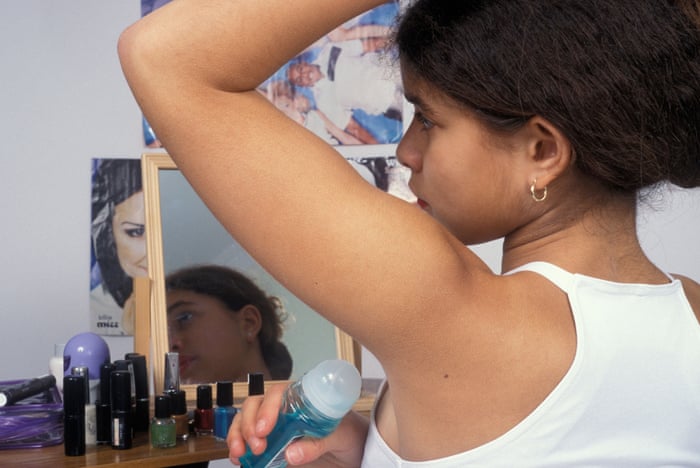The Health/Beauty Marketing Trap
 |
| Perfumed, moisturized, exfoliated. Enviromantic/Getty Images |
"I don't want to tell anyone they're wrong. Some people really love beauty. If someone has the money and time, and really enjoys those cleansing rituals, that's their right. But it's nothing to do with health or preventing anything." "We tend to be very susceptible to marketing and advertising that associates products and brands with health, when in fact many of us are spending time and money doing things that we could try doing without." "I take short, quick showers that aren't hot. It gives me a rinse, makes my hair lay down, and makes me feel like there's some divide between night and day in this pandemic time, especially." "I wash my hands because I don't want to have disease. I'm deliberate about why I'm doing what I'm doing." "Teeth whitening is a great example. It's very much social, and about beauty. But it doesn't actually have to do with hygiene, and it doesn't mean your teeth aren't free of bacteria and you don't have an oral infection." "There was great social value in knowing you weren't part of the people living next to the open sewage piles that were in [pre industrial era] London and elsewhere. You were part of the washed class because you could afford soap and water." Dr.James Hamblin, preventive medicine physician, lecturer in public health policy, Yale University
 |
| Research shows that Amish people – who live a rural lifestyle and embrace traditional agricultural methods – have optimally diverse microbiomes. Photograph: Bruce Burkhardt/Getty Images |
Dr.Hamblin's argument is that the public has chosen to believe all the marketing and advertising geared to persuade them that cleanliness and optimum hygiene can only be obtained by purchasing and using the products crowding the market promising better health, improved appearance and an upgraded outlook on life come complete with the use of redundant products such as moisterizers, artificial ointments and lotions that smell good and promise the world. When, in fact, all that is required to attain both health and hygiene goals is a bar of soap and running water.
In point of fact, points out Dr.Hamblin in a newly published book, Clean: the New Science of Skin, the overuse of a tangle of products that are unneeded, fail to produce a positive outcome as promised, and in the long run often disturbs the natural cleansing process our bodies themselves have acquired as a result of evolution. Applying artificial ointments, lab-produced with an encyclopedia of chemicals makes it more difficult for the natural processes that have developed to nurture our skin, the largest organ of our body.
The Demodex mite as an example, a microscopic creature which teem in huge numbers over our skin feed off discarded and dead cells, in so doing act as a natural exfoliant, superior to the microbe-ads we are persuaded to scrub on our faces. Additional mites and microbes living on our skin consume sebum which works to apprehend oily skin from developing. "They're not hygiene practices. They're recreational and social practices", Dr.Hamblin notes of the products we use to shower, to scrub and salve skin with.
 |
| Stigmatism of body odour began as an advertising strategy that helped quadruple the sales of Lifebuoy soap in the 20s. Photograph: Angela Hampton Picture Library/Alamy |
The hygiene, beauty and cosmetics industry has a value of $500billion. Dead cells disappear as our skin regenerates roughly every 27 days. Dust and particulate matter from the atmosphere can be washed away with the use of water. Dr.Hamblin insists that once your body reaches a steady state after returning to normal with the removal of all chemical products commonly seen on the market, problems with body odour tend to disappear. Soap, he contends, dries out the skin, which then requires the use of moisturizers.
 |
Dr.Hamblin uses nothing but water when he takes his regular showers, using hand soap primarily for his hands alone. And he brushes his teeth for the singular purpose of sustaining their condition: "I don't want them to rot", he says. With the original production of soap in the pre-industrial area, soap was expensive, serving as a symbol that you were elevated over those who were unable to afford a bar of soap. With the Industrial Revolution soap, like most other products was produced more inexpensively, placing it in the realm of affordable for many more members of the general public.
Dr.Hamblin is also quick to point out that showering goes beyond its daily cleansing purpose; it is a normalcy measure, a reassuring routine that gives structure to the day. You awaken, you shower, you break your fast, you leave the house and arrive at your workplace. "This is an odd time, and at times like this, it becomes important to do things that ground you. These [ritualistic] markers are important to us to maintain the rhythms of how our minds and bodies are meant to function."
Labels: Advertising, Health Care, Hygiene, Marketing

0 Comments:
Post a Comment
<< Home